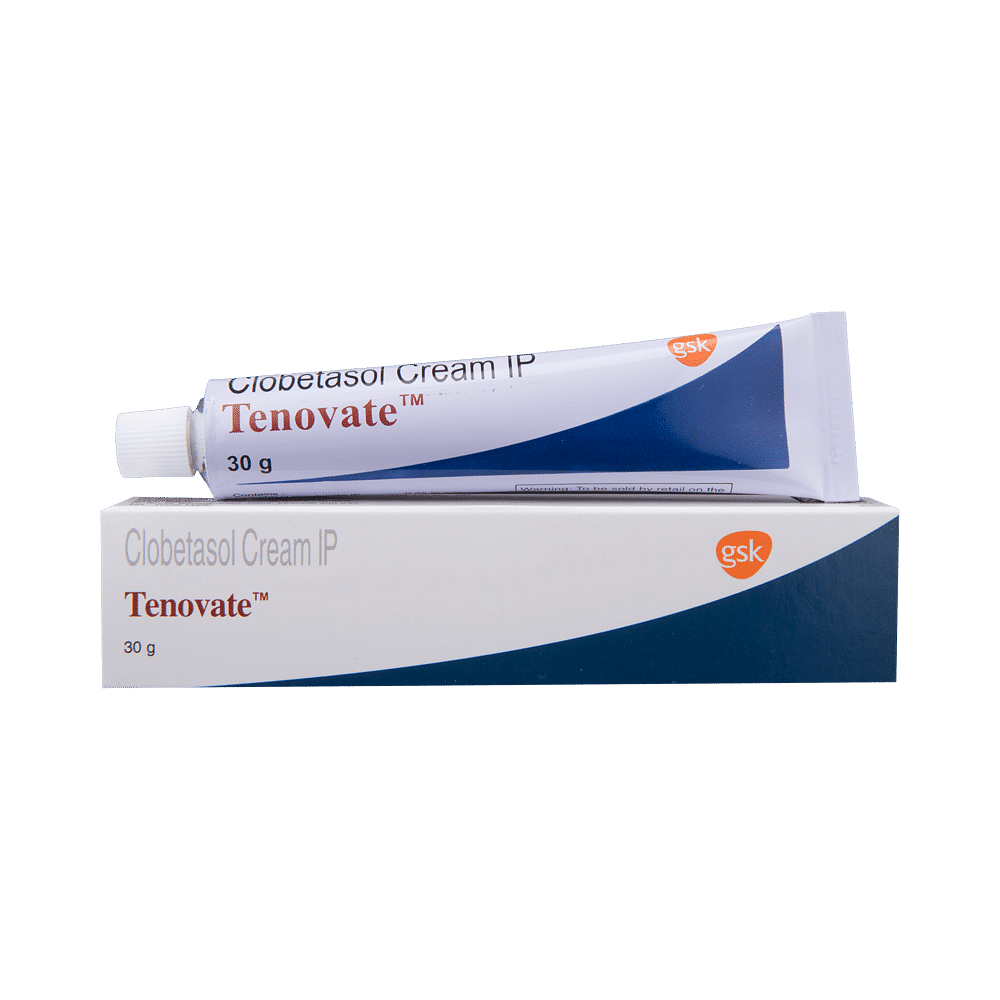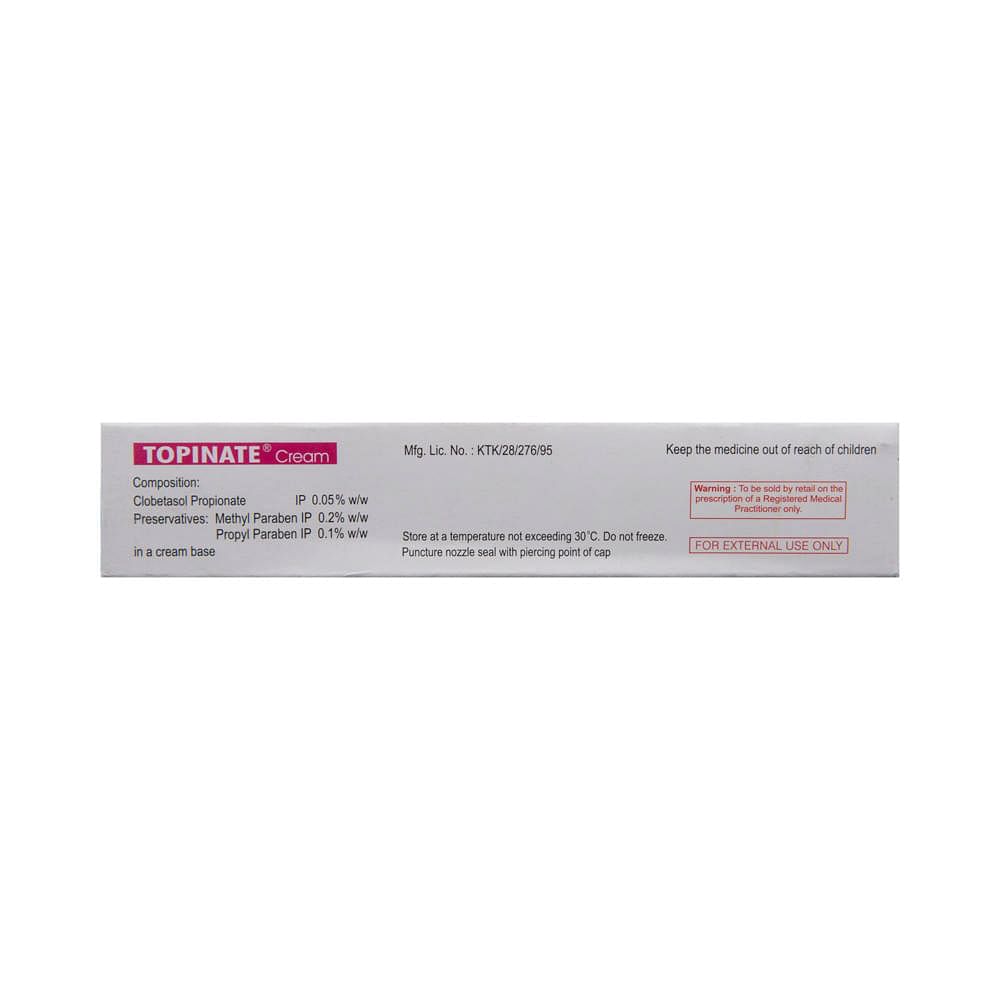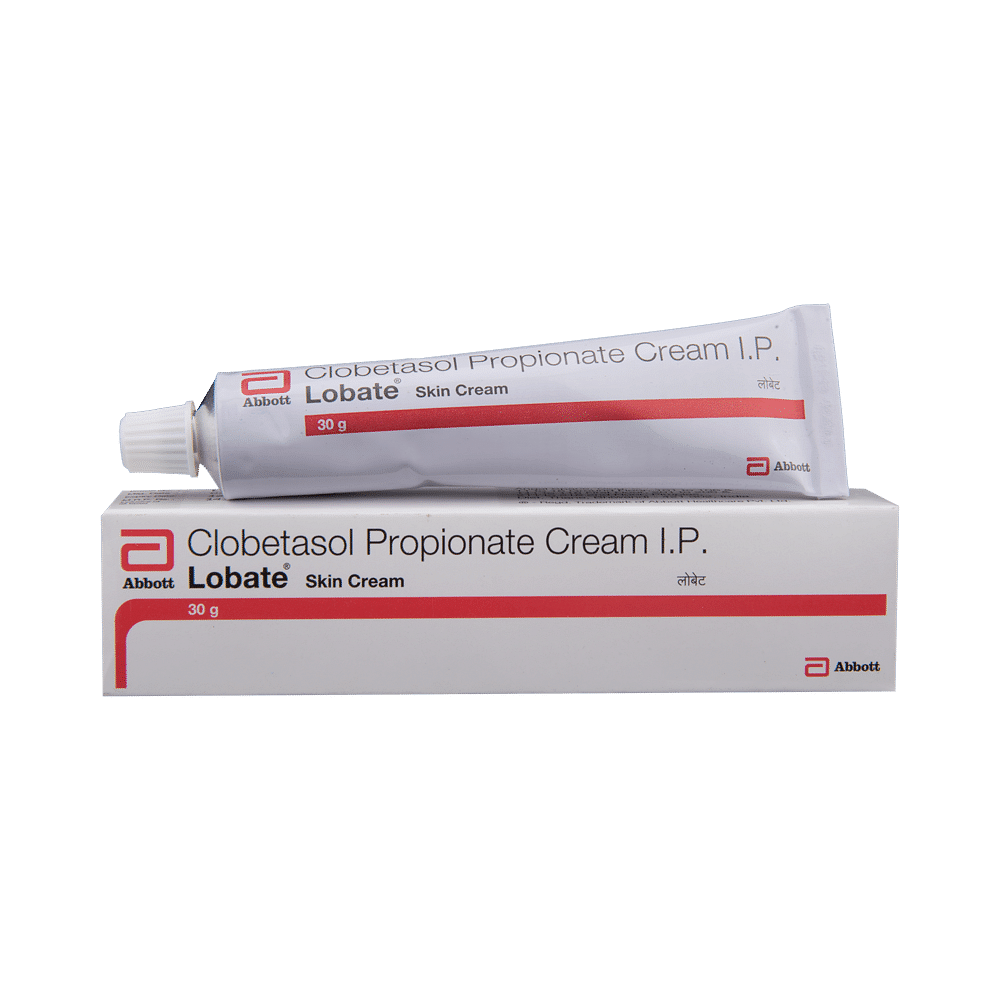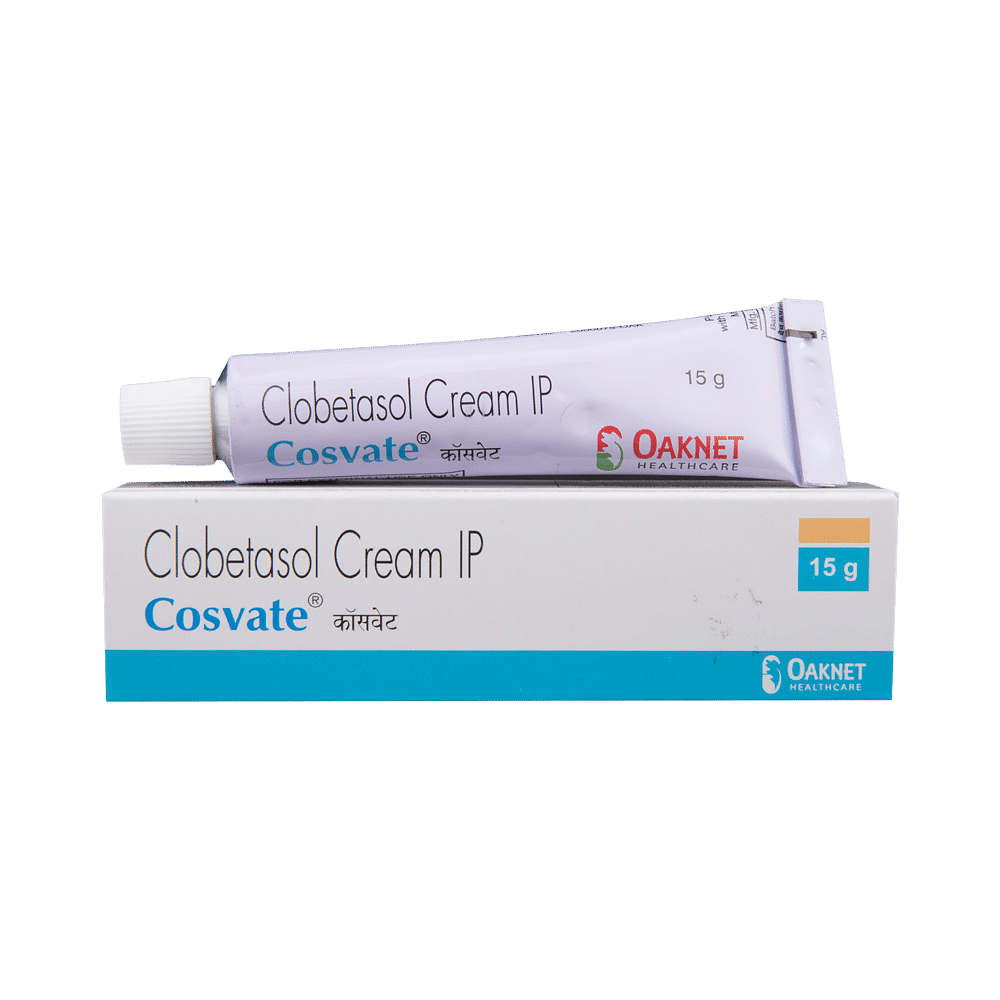
Supravate Cream
Manufacturer
Parker Robinson Pvt Ltd
Salt Composition
Clobetasol (0.05% w/w)
Key Information
Short Description
Supravate Cream is a steroid used to treat various skin conditions such as dermatitis, eczema, and allergies, reducing swelling, redness, and itchiness of the skin.
Dosage Form
Cream
Introduction
Supravate Cream belongs to a group of medicines called steroids. It is used to treat various skin conditions such as dermatitis, eczema, and allergies. It works by reducing swelling, redness, and itchiness of the skin and prevents further irritation.
Directions for Use
This medicine is for external use only. Use it in the dose and duration as advised by your doctor. Clean and dry the affected area and apply the cream. Wash your hands after applying unless hands are the affected area.
How it works
Supravate Cream is a steroid. It works by blocking the production of certain chemical messengers that make the skin red, swollen, and itchy.
Quick Tips
Supravate Cream is used to treat redness, swelling, itching, and discomfort of various skin conditions It should be applied to the affected areas as a thin film two or three times daily or as advised by your doctor Don't use it more often or for longer than advised by your doctor Don't cover the area being treated with airtight dressings such as bandages unless directed by a doctor If you think the area of skin you are treating has become infected, stop using Supravate Cream and consult your doctor
Related Medicines

Tenovate Cream

Clop Cream

Topinate Cream

Clop-E Cream

Lobate Cream

Cosvate Cream

Plecikoid 0.05% Cream

Clobet GR 0.05% Cream

Oleb 0.05% Cream

Micolin 0.05% Cream
Frequently asked questions
Can Supravate Cream be used for a long time?
No, Supravate Cream is not intended for long-term use. It should only be applied twice daily for 2 consecutive weeks by the doctor. However, if there are chronic inflammatory conditions, treatment duration may be extended.
Does Supravate Cream cause severe skin reactions?
Severe skin reactions with Supravate Cream are uncommon. It is an anti-inflammatory medication used to treat skin diseases, skin reactions, and eczemas. However, if you have a hypersensitive reaction to the cream, it can cause skin irritation. Leaving the affected area open after application prevents occlusive dressings from aggravating the skin and may increase chances of irritation.
Can Supravate Cream be used on the face?
No, Supravate Cream should not be applied to the face. It is also not recommended for use in armpits (axillae), groin, or areas with tissue atrophy at the treatment site. In some rare cases, a doctor may recommend its use, but only after consultation and if used, it should be limited to a maximum of 5 days.
Can Supravate Cream be applied to children?
Supravate Cream is not recommended for children under one year of age. It's also not suitable for older children and adolescents, as they are more likely to experience side effects.
Can we use Supravate Cream in infections?
Supravate Cream is not an antimicrobial or antifungal agent. It's a corticosteroid medication that suppresses the immune system and increases infection risk. Applying it during an infection can worsen bacterial conditions. If your skin lesions become infected or if there is any spread of infection, consult your doctor immediately. The treatment may be withdrawn and appropriate antibiotics prescribed.
Can I stop taking Supravate Cream when my symptoms are relieved?
No, do not discontinue Supravate Cream before finishing the full course even if you feel better. Symptoms might improve before completion of treatment. Stopping early can worsen your condition.
Does Supravate Cream cause dangerous skin reactions?
Local skin reactions with Supravate Cream are rare. This anti-inflammatory medication is used to treat skin diseases, skin reactions and eczemas. However, if you experience a hypersensitive reaction to the cream, it can trigger skin irritation. It's important to keep the affected area open after application to prevent occlusive dressings from causing further skin irritation.


